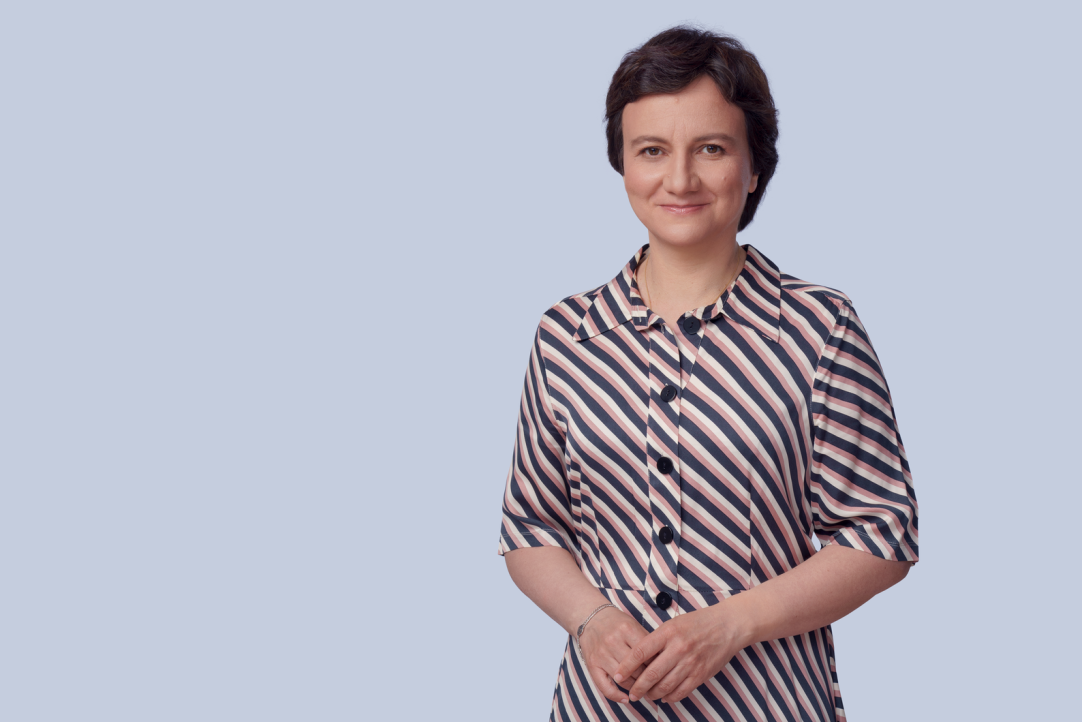Maria Yudkevich: Serious Research Projects Are a Marathon, Not a Sprint

Rapidly changing approaches to the pursuit of scientific knowledge are making research more interdisciplinary in nature. Science and researchers are now more open to society, while student academic mobility among universities is encouraged. Maria Yudkevich, HSE Vice Rector, talks about these issues, explaining how HSE University promotes and expands its research activities and supports early-career researchers.
The 'Wow' Factor for Students
In Soviet times, there was a disconnect between the research done by the Academy of Science and the work of university faculty. An important trend in the last decade is that real science, including fundamental science, is coming closer to universities. Research is becoming integral—it is no longer divided into separate sectors. It is also attracting more students who now have opportunities to get involved in research from the very beginning of their studies.

This is a “wow” factor for students. They see that they are not just taught abstract theory, but they can learn about cancer research, the search for anti-COVID vaccines, or how to increase the efficiency of their smartphones.
Students know that the things they are studying now are ‘cool’. Students of HSE University, Moscow State University, and other universities have even participated in designing and manufacturing satellites that are now orbiting Earth. While these satellites aren’t the most powerful, they collect data which can be used by students in computer science, physics, biology, or chemistry.
Busting Myths
The first myth is that a student has only two options after graduating from university: they can either find a job with a company to produce something, manage people, earn more and more money, and set up their own business, or they can stay at university to write articles, win grants, and go on to become the head of an academic department. However, the truth is that you can do research anywhere.
Giants like Facebook, Amazon, and Sberbank have large research departments
Another myth is the misconception that student research is not a job, but a volunteer activity one does for free. On the contrary, there are a number of programmes that provide support to students, including financial support. Hundreds of students work as research assistants with HSE University. This is the first step in their research career. Students have a relevant record of their employment status. They receive their wages and sometimes extra grants. HSE University’s Science Republic programme gives students a chance to immediately join a community of like-minded people. Members of this programme can receive grants from HSE University. More and more graduates are also getting involved in a programme to provide financial support to university students.
Many HSE University alumni would like to give money to help other students who lack financial opportunities
Finally, the third myth is that you’re better off staying where you are. This applies to academic staff. Today, it is very important to rotate staff and students between universities, to mix intellectually, to exchange ideas and personnel. For example, HSE University has a Russian Postdoctoral Fellowship Programme.
This programme allows recent PhD graduates to come to us for a year or two from a regional university, join our research staff, get to know our university, get involved in projects, and move forward in their research careers

Every year, about 50 people arrive from different universities located in all kinds of Russian regions—from the Far East to Murmansk. They include biologists, geographers, economists, sociologists, etc. They have their own background and are very motivated and charismatic people.
They join our intellectual team, and in a year or two they move on to work for another university, with an improved range of knowledge and skills under their belt
Fostering Competition
If you want to have the best of the best all the time, you have to be able to part with the best. We often discuss why we let a student go to Harvard to do postgraduate studies, why a postdoctoral student went to MIT if we’re no less competitive. However, imagine Harvard asking a new arrival, ‘How did you get so smart?’ And they reply, ‘I graduated from HSE University.’ This is better than any advertising brochure.
The HSE University Digital Professors programme invites professors and researchers from across the globe—from Harvard to the University of Hong Kong—to teach students of HSE University and regional universities.
We call them “digital professors” because we have only seen most of them online
To use a sporting analogy, you should train with the competition breathing down your neck. Fostering competition makes you stronger yourself. There's nothing more dangerous than saying, ‘we're at the top, we're the best, we can relax’. That's the first step down the slippery slope.
Who Can Become a Researcher?
Anyone interested in research should know that one of the most important qualities a researcher must have is patience. Any serious project is more of a marathon than a sprint. To discover something new, you have to have a whole series of discussions, publish articles in reputable journals, and attend conferences.
Not being able to get a result at first is a challenge for a lot of researchers early in their careers. They look at some of their peers who started out working in a bank as ‘junior assistants to the junior manager’, yet already enjoy career growth and increasing salaries.
In research, you can spend a year studying in a library or growing something in a test tube, only to realize that it didn't work and you have to start over. It takes courage
Not everyone is prepared to go through that. The university must work with promising students and early-career researchers to create engagement tools and a nurturing environment.
Portrait of an Early Career Scholar
Let's say right off the bat that it isn’t only men who become researchers and teachers, and it's been that way since Soviet times. The image of a somewhat scruffy-looking man wearing a jacket with chalky elbows is a stereotype that should be forgotten. For instance, the Dean of the HSE Faculty of Mathematics is a young woman who has been doing an excellent job for more than a year. She is engaged in the development of both academic and research programmes, and she is also a practicing researcher.
Today, society expects much more openness from science than before, and people want to understand scientific results.
Researchers are expected not only to produce scientific knowledge, but also popularise it and talk about science in an understandable and lively way
Major foundations that award grants are starting to include requirements regarding the impact of entrepreneurial activity on the world and people's lives. Not only do they want to know how many high-quality articles applicants have published in major journals, but they also ask how society will benefit from the results of their work.
Another sign of the times is that previously disinterested audiences have begun to turn to scientific research. Many new sources of information have emerged: social media, online publications, and other channels.
A lot of HSE scholars run individual Instagram and Telegram pages where they talk about what they do
For example, HSE University hosts student Science Battles, where experts evaluate short stories from students about research they have taken part in.
At the Intersection of Disciplines
Science is moving away from being branch-based and disciplinary, where every field of knowledge is isolated from others. There are multidisciplinary areas, which in many cases are points of growth.
HSE University has research divisions and projects that engage joint teams of computer scientists, philologists, and linguists. Together with Yandex, the St Petersburg campus of HSE University recently established a Natural Language Laboratory, which uses computer methods to come up with tools for analysing literary texts, among other things. Philologists learn programming languages so they can write programs to analyse texts, while computer science students do a lot of reading.
The university’s role is to make young people understand that they have to shape their own educational trajectory
HSE University has been using the ‘major and minor’ system for some time, where students have two fields of study and an opportunity to broaden their educational horizons. It is worth noting that programming skills are in high demand, and programming languages are becoming the new language of communication. While such skills are a major advantage in today’s labour market, they will be essential in tomorrow’s.
Maria M. Yudkevich
Vice Rector

